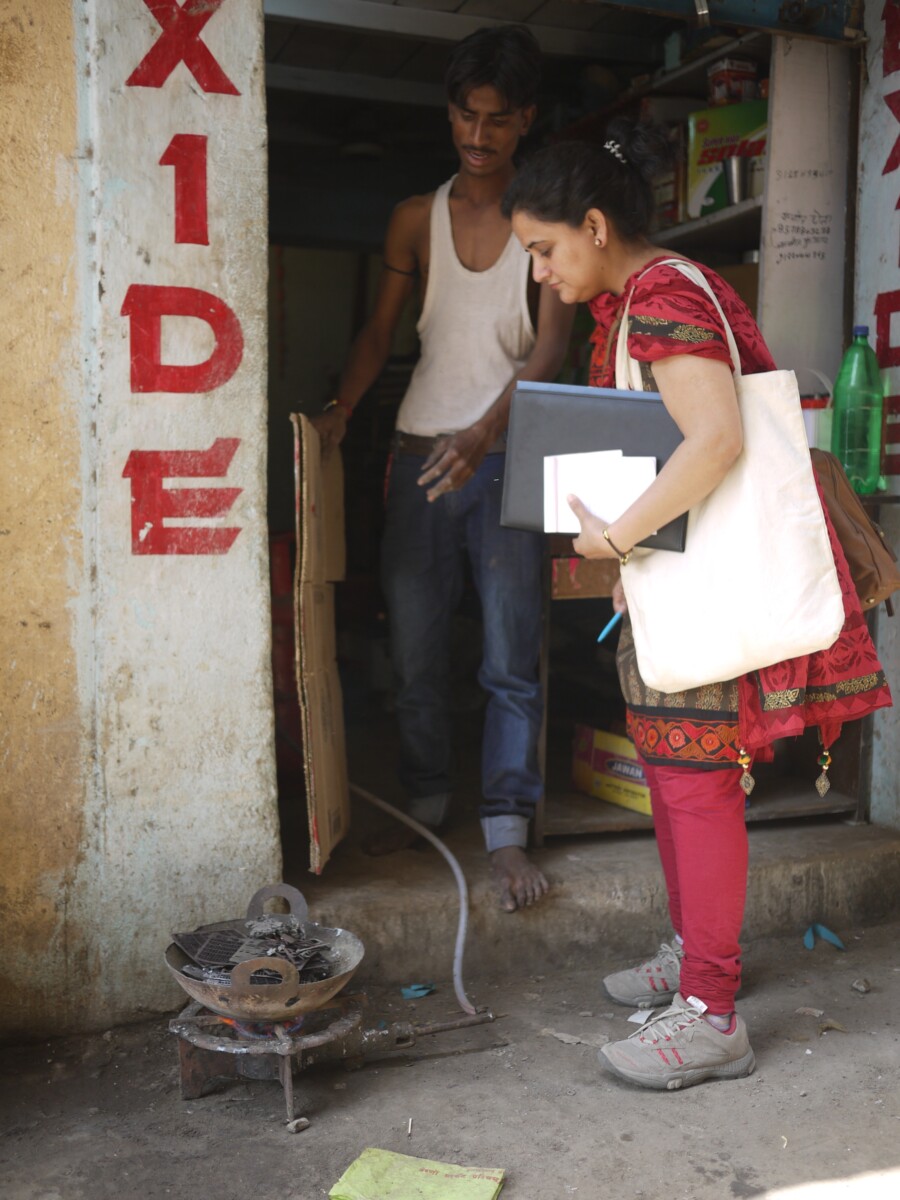India: Lead Cleanup in Karmalichak (Patna city, Bihar state)

Institute of Environment & Eco Development (Bihar, India); Indian Society for Lead Awareness and Research (Uttar Pradesh, India)
In the city of Patna, state of Bihar, India, used lead-acid batteries are assembled and recycled informally in residential neighborhoods causing children to be poisoned by lead. This project aimed to reduce levels of lead in children’s blood in the neighborhood of Karmalichak, where batteries were assembled and recycled informally next to an elementary school.
The project site was initially identified through the global TSIP Toxic Sites Identification Program. In April of 2015, preliminary soil sampling was conducted throughout ULAB recycling areas around Patna. We identified lead contamination in soil that was more than 1000 above US EPA standards in locations where children play. A detailed assessment of the site and exposure risks was conducted in 2016 to confirm the feasibility and likely benefits of risk-reduction activities. An analysis of the blood lead levels (BLL) among 41 local children was conducted prior to the most significant risk-reduction activities. The mean BLL among local children at that time was approximately 25 μg/dL.
As of July 1, 2018 the following primary elements of the risk-reduction project were completed: 1) an assessment of lead contamination in soil and levels of lead in children’s blood; 2) a community education program about lead poisoning risks and measures to protect children; and 3) a soil capping program to prevent exposures to lead dust from contaminated outdoor areas. A home and school cleaning program to remove lead dust from indoor spaces was completed in August 2018.
Pure Earth is helping India solve these pollution problems both locally and nationally. Locally, we work with small-scale industries to improve industrial processes and prevent future pollution releases. Once we have stopped ongoing pollution, we cleanup existing toxic contamination of local soil and water. For example, India has thousands of “mom and pop” car battery recyclers that spread lead dust throughout their communities. Lead is a neurotoxin, and lead dust is incredibly dangerous for children. Pure Earth works with these recyclers directly to modify their practices and stop lead dust emissions. Next, we conduct simple yet effective community cleanup projects to reduce health risks from lead dust released in the past. This model is proven to lower the amount of toxic lead in children’s blood.
Nationally, we formed a powerful coalition called the Indian Alliance on Health and Pollution with two other Indian organizations—the Council on Energy, Environment and Water and the Public Health Foundation of India. The combined experience and reputations of these partners allows the Alliance to shift public policy and empower the public with information and tools to ensure government accountability on pollution. The Alliance is a juggernaut for positive change.
Watch the video or read stories from The Pollution blog:
Bihar, India: How we celebrated a community, and helped them take action on lead poisoning
Looking For Lead? No Problem! Quickest Discovery In Two Decades
